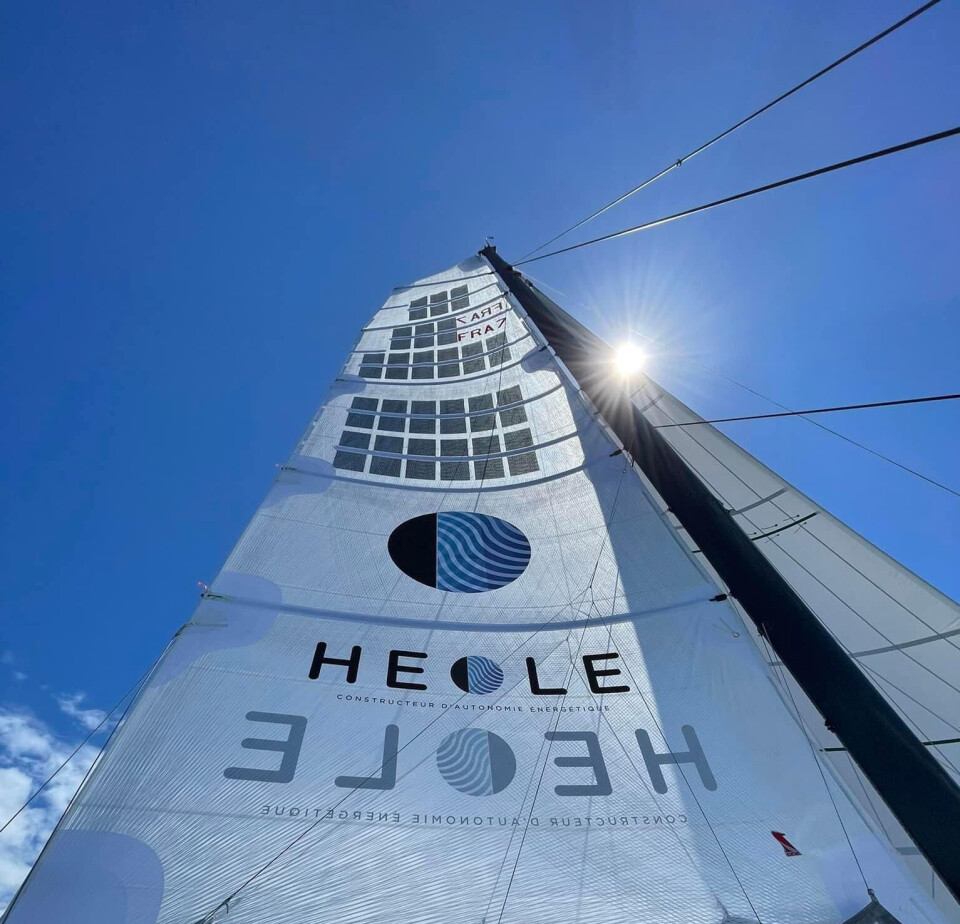-
Post-Brexit boat registration in France - reader solutions
Owning a second-hand boat in France as a UK resident can be complex
-
Buying a second-hand boat in France is 'harder than buying a house'
There are implications surrounding the country of registration and UK VAT
-
DIY solar panels in France: Considering the pros and cons
Solar panels help combat rising electricity costs - at a price
French firm’s solar panel sails let yachts produce their own power
The OPV panels, different to more common silicon-based ones, can potentially be used on the canvas of tents, awnings and airships too

A firm has perfected a way of incorporating organic photovoltaic (OPV) cells into a canvas-like material and hopes to start selling sails with the technology next year.
Prototypes have already been tested, and final trials were held on racing boats in September.
Available from next year
Jean-Marc Kubler, deputy managing director of Héole, based in Vannes in Morbihan, Brittany, said: “Trials show that our sails produce enough electricity to power all the onboard equipment on the racing boats, while coping with strong winds and seawater.
“We are already in contact with boat-makers, and our sails will be an option for buyers from next year.”
After the trials, some of the teams that had been testing them decided that the 10-12 kg extra weight of the electricity-producing sails meant they could not yet be used in actual race conditions.
“But they will work perfectly for cruising yachts,” Mr Kubler said.
Other uses
The company is also developing an airship powered by an OPV membrane, tents that produce electricity, and shades for offices and shops.
Read more: Solar panels on French property: how to make your own electricity
OPV cells use a different technology from the silicon-based ones found in most rooftop solar panels and until recently did not produce as much electricity.
“They have become much more efficient and at Héole we have found a way of incorporating them into material so they can be used in objects such as sails,” said Mr Kubler.
“We are the leaders in finding practical uses for this technology.
“It is being improved all the time and I expect it will soon be more efficient and longer-lasting than silicon technology.”
OPV technology
There are around 15 manufacturers of OPV cells in Europe.
The cells are made out of an organic – in the chemistry sense – plastic which can be sourced renewably.
“OPV technology is now similar to where LED lights were 15 years ago – just starting out, and then spectacular progress was made.
“Our strength is that we know the technology and how to use it to make products which meet all the standards for professional use.
“We know how to incorporate it in material, we know how to connect the electricity from the product so it can be used, and we have been able to demonstrate, with sails and an airship, that it works,” said Mr Kubler.
The firm is looking for investors to accelerate its progress, and is confident France could take a lead in the technology.
“We have manufacturers in Europe to provide us with the cells and the know-how to make sails. I am sure it will be common very soon,” he said.
Related articles
Coloured solar panels can offer solution for protected areas in France
France sets new peak solar power output – but not due to heatwave
Green news France: easy-install solar panels, stop fly-tipping team
























